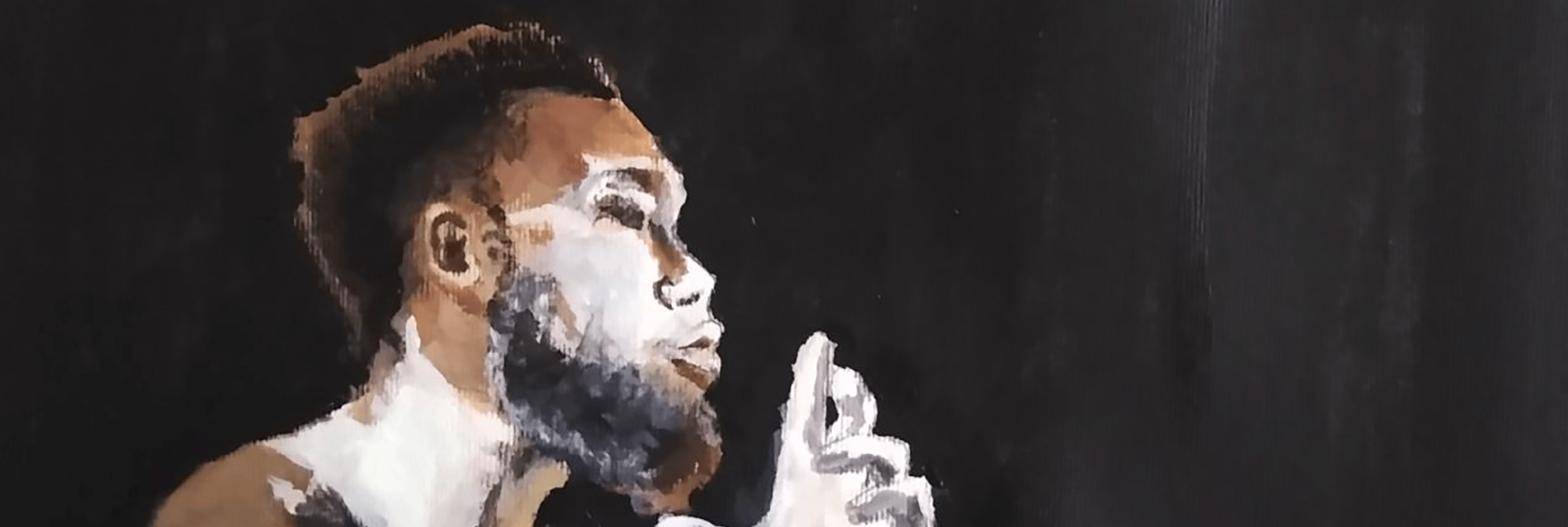During the Coronavirus lockdown, Wimbledon's BA Acting and Performance students took part in a 2-day Radio Play Festival online on 12 June, sharing group productions which reinterpreted original plays and explored their historical, cultural and artistic context.
We spoke to first year students Alfie Dale and Arielle Zilkha to find out more about the plays they worked on, as well as their practice and experience creating from home. We also caught up with Production and Digital Lab Manager Anette Ollerearnshaw, to talk about how she has been supporting students virtually when face-to-face teaching hasn't been possible.
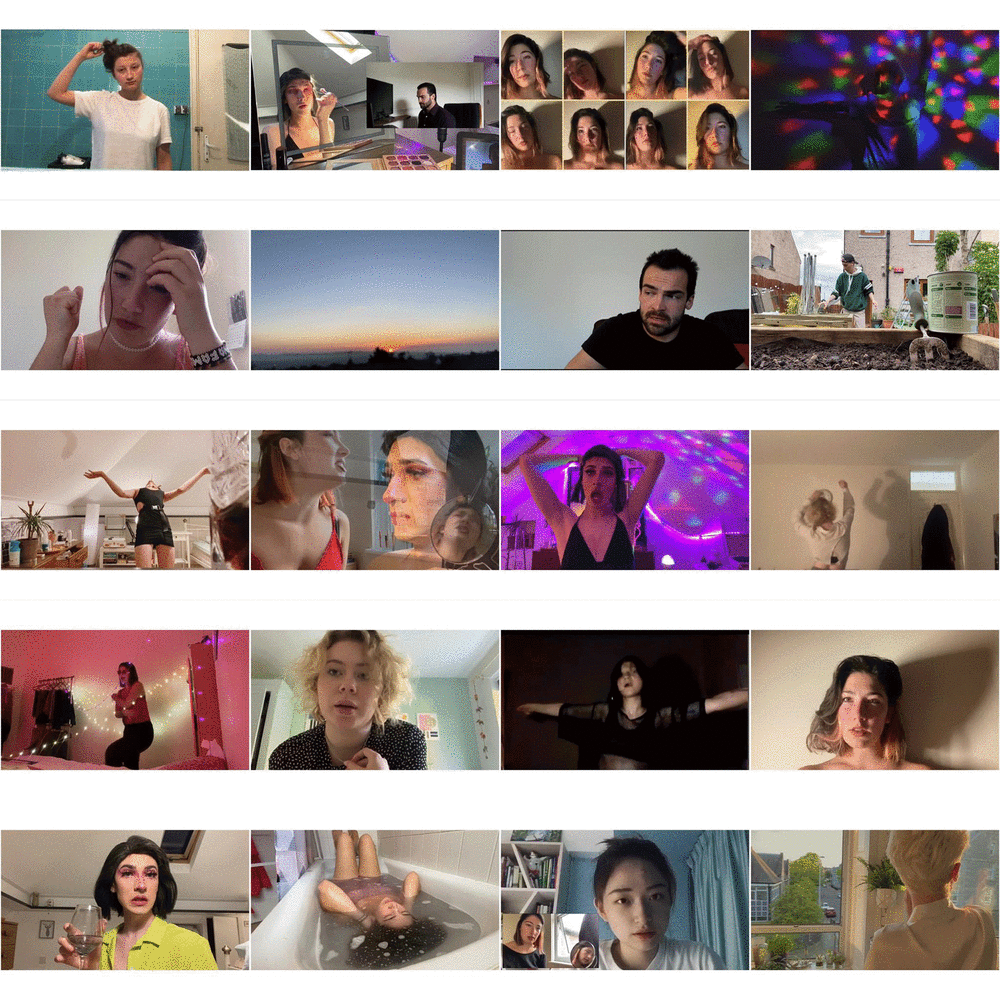
Can you tell us about the productions you worked on?
Arielle: My group worked on producing a radio production of Suddenly Last Summer by Tennessee Williams. As the Historical Group, we produced a version of the original play text, set in the Garden District of New Orleans in 1937.
Alfie: My group worked on a production of An Octoroon, which is a remixed/abridged interpretation of the adapted contemporary play-text by Branden Jacobs-Jenkins. The play looks at the portrayal of race and explores how theatre interacts with questions of identity during a time when slavery was still commonplace in America.
What did you enjoy most about the project?
Alfie: My most fond experience of An Octoroon was the conversations we had regarding the context of the play, and reflecting on how we wanted to approach both the historical, and contemporary texts in a professional manner. This was essential to our process. The production not only served as a safe space for group members to share first-hand experiences of racist, systematic oppression, but to supportively represent them as well.
Areille: Being able to work on developing a character and their journey over a two-month period. It’s been fascinating to see how we were able to produce a coherent piece of theatre from our own homes in completely different locations! This production marks the end of our first year at Wimbledon, so I am really proud as it is a reflection of the hard work we’ve all put in as a group. It’s been a different process to what we’re used to, but showed us how to adapt in ways I wouldn’t have imagined possible.
How has the project developed your creative practice?
Arielle: I think we’ve all developed our ability to self-direct and critique our own work, but also some really important technical skills that we wouldn’t have developed if we’d have been rehearsing and performing in a studio environment. As not just actors, but also theatre-makers in the contemporary world, being able to produce work using technology is something that can definitely help develop our future practice.
Alfie: It taught me how to manage my time while dealing with the complexities of a global pandemic and how to approach any project with a creative and eager attitude. It also taught me how to rehearse, record and edit my audio in Soundtrap!
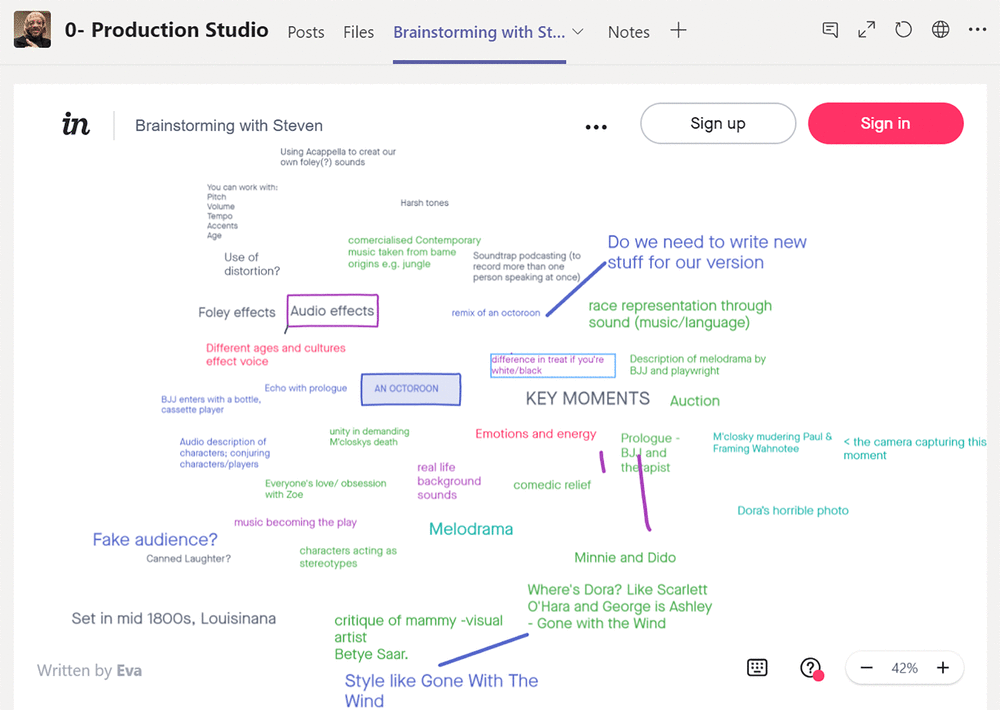
How did technicians support you throughout the development process?
Arielle: It was really reassuring to know the technicians were always on hand to help when we needed something. We were working with Soundtrap to edit and produce our piece, a software that none of us were familiar with before. The technicians were able to guide us through this process and taught us some really useful editing and recording skills along the way.
Alfie: Technicians were crucial throughout the development process, in fact, most of our Microsoft Teams calls were accompanied by them. Despite Moodle and Soundtrap offering video tutorials on how to collaborate through our devices, a large number of the company still found it difficult to adapt to the new format. Thankfully, technicians were always on hand to guide us through how to utilise the tools more effectively!
Anette, as Production and Digital Lab Manager how have you been involved in this project?
I worked with a group of 15 students, Elyssa Livergant and Steven Kavuma on the play An Octoroon. My colleague Joe Bosworth joined in to help students with the learning of necessary skills for the recording elements of their performances.
For the meetings, communications, company lab sessions, we worked in our group channels that I set up using Microsoft Teams. With a little bit of trial and error, I worked on making the technology work for us, rather than being at the mercy of templates and limitations.
Once we got closer to the production weeks I held weekly cross project Company Production Meetings for the An Octoroon and Suddenly Last Summer teams. This helped to anchor the lighting and technical activities into a production-like approach and guided students through the planning of their final recordings, editing and presentation of their work.
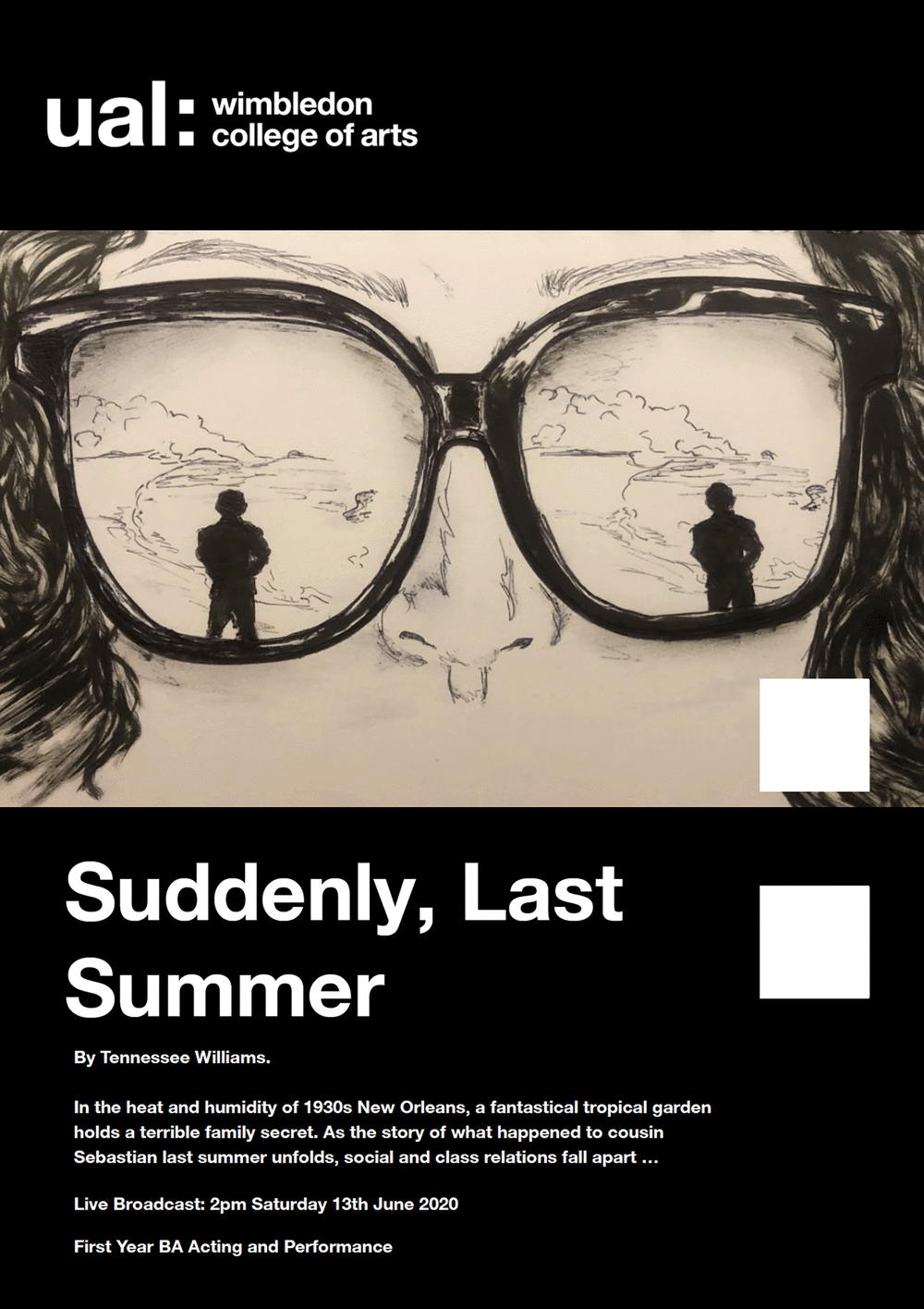
Alfie, what was it like working with Theatre Director Steven Kavuma?
It was a pleasure to work with Steven! He consistently gave us super useful input with our ideas but gave us the creative independence that allowed our production to be as authentic as possible. His theatrical and sociological direction inspired the company to always adopt a positive mindset when thinking creatively, regardless of the challenges that these past months have thrown our way, both as a nation and as human beings in the simmering social and political climate that we find ourselves.
Arielle, what was it like working with Professor of Theatre Performance, Jane Collins and Programme Development Director, Adrian Kear? What did you learn from them during the creative process?
Even though most of our work was done independently, Jane and Adrian were always on hand to aid the progression of the radio play and our individual development of characters. Jane helped me feel confident in my choice of delivery, and in our sessions together, she gave me some invaluable advice. I learned how to use words for impact as a way to communicate a particular meaning to the audience. Jane and I also worked together to make the final edits of the piece on Soundtrap, checking the balance between the music, sound effects and dialogue, building my production skills.
Adrian’s academic background really helped us draw the balance between theory and practice. He brought our attention to the importance of symbolism and imagery in the play, such as the dichotomy between the ‘whiteness’ of Sebastian and the ‘blackness’ of the Spanish boys. Noticing these recurring themes allowed us to create a piece that was coherent in its dramaturgy. We also discussed the historical and literary contexts of the play, as well as in relation to The Bacchae, which was fundamental to my understanding of the characters I played.
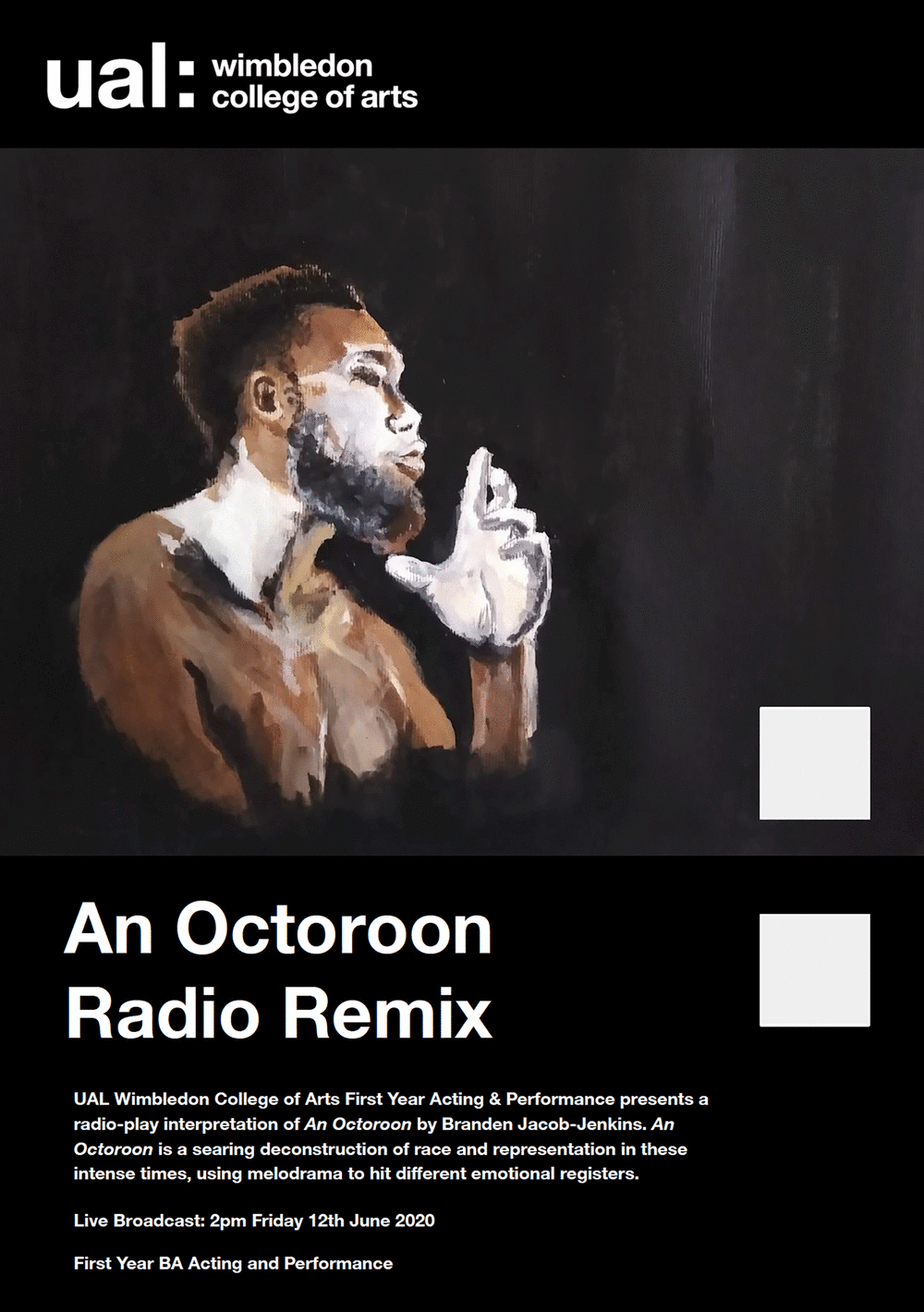
BA (Hons) Acting and Performance, Wimbledon College of Arts, UAL | Photograph: Wimbledon College of Arts
What have you found most challenging about working from home?
Arielle: Probably the fact that we haven’t been able to rehearse together and be in the same physical space as each other. It was really daunting to record our lines on our own without hearing the other characters’ responses and feeding off the energy of the other actors. It’s not something you’d normally adapt to in the development of a collaborative piece, yet working from home we had to learn to work with what we had available to us, accepting the limitations of technology.
Alfie: Characterisation was very difficult for most of our company, myself included. Having to record our lines in our bedrooms, wardrobes and bathrooms made us realise that actually getting into character was a lot harder than if we were in the rehearsal studio together.
What adjustments did you put in place to help adapt to the new change of environment?
Alfie: Routine. Routine. Routine. At first, when the quarantine measures were put in place, I found myself lacking in productivity and motivation. After I began to organise myself, I learnt the importance of my mental and physical health, and the subsequent adverse effect on my creative output as a whole if I didn’t look after myself.
Arielle: I made sure my home working environment was more comfortable for me to work in, especially throughout post-production as I found myself working on the project for long hours during the day.
What tips and advice would you give to other students finding it hard to create from home?
Arielle: Embrace technology and the crazy world we live in! I always find it’s important to move with and adapt to the present, especially when we’re governed by forces out of our control. We can’t just let theatre-making stop. Of course there will be obstacles as you’re creating from a different environment to what you’re used to, but it’s nothing a bit of problem solving can’t fix!
Alfie: Close collaboration is absolutely crucial to ensuring that you and your company are able to work as a team. As the old saying goes; ‘Teamwork makes the dream work!’ and applies massively whether you’re in studio or at home.
Find out more about studying BA Acting and Performance at Wimbledon College of Arts.
